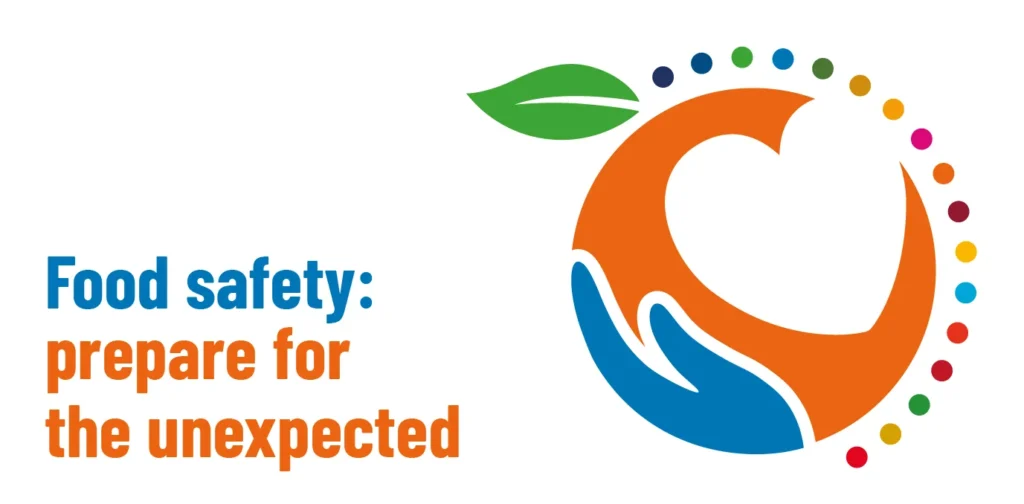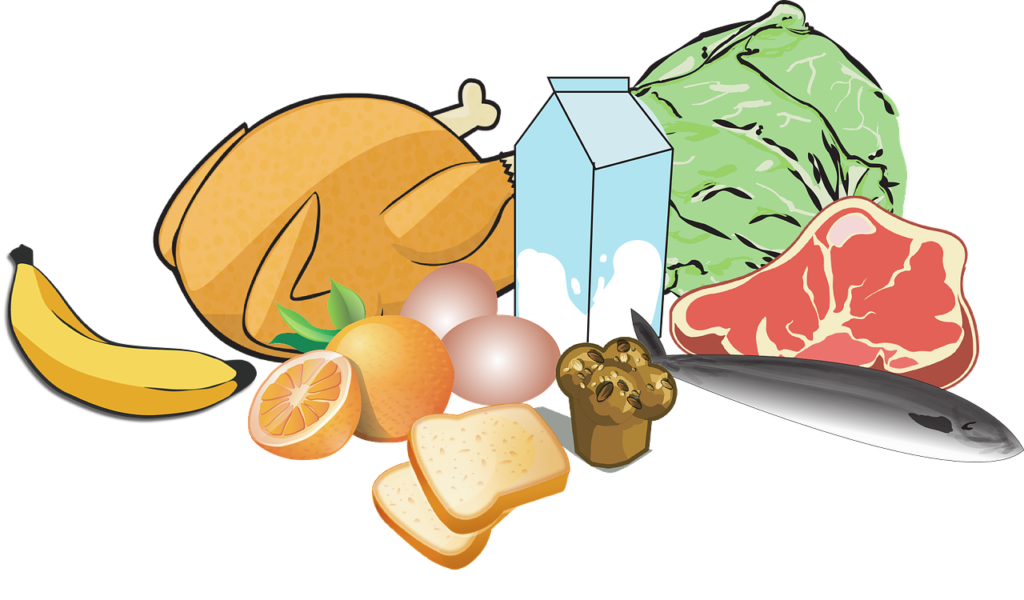World Food Safety Day 2024, celebrated on June 7th, highlighted the theme
“Food Safety: Prepare for the Unexpected.”
This annual event underscores the vital importance of food safety in protecting public health and ensuring the smooth operation of the food industry.
For food handlers and the public, understanding and implementing food safety practices is crucial.
This year’s theme emphasized the need for preparedness, highlighting the importance of robust systems and strategies to handle unforeseen challenges in food safety.
Let’s dive into the key discussions and takeaways from this important day, providing practical insights for food handlers and consumers alike.
Notable Participants and Their Contributions
World Food Safety Day 2024 featured several influential figures from global organizations who highlighted various aspects of food safety.
Here are some of the notable participants and the key points from their speeches:
FAO Director-General QU Dongyu

QU Dongyu, the Director-General of the Food and Agriculture Organization (FAO), delivered a powerful speech on the global impact of foodborne diseases.
He emphasized the critical need for robust food safety systems worldwide.
QU highlighted how food safety is integral to achieving food security and sustainable development, stressing that preventing food contamination not only saves lives but also promotes economic stability and growth.
He called for increased investment in food safety infrastructure and stronger international collaboration to combat foodborne illnesses (Food Safety Africa).
WHO Representative Francesco Branca
Francesco Branca, representing the World Health Organization (WHO), focused on the importance of consumer education and readiness across all sectors to tackle unexpected food safety issues.
He stressed that every stakeholder, from government bodies to consumers, plays a pivotal role in ensuring food safety.
Branca highlighted WHO’s commitment to supporting nations in enhancing their food safety systems and underscored the need for comprehensive public health strategies to reduce the burden of foodborne diseases.
Corinna Hawkes from FAO
Corinna Hawkes, a senior representative from FAO, spoke about proactive measures to mitigate food safety risks.
She emphasized the importance of anticipating various events, including natural disasters and infrastructure disruptions, to minimize food safety risks.
Hawkes pointed out that rapid data collection and information exchange are crucial in identifying the origins of food contamination swiftly.
Her speech underscored the significance of preparedness and resilience in maintaining food safety standards in the face of unexpected challenges
Key Topics Discussed
World Food Safety Day 2024 revolved around the theme “Prepare for the Unexpected,” highlighting various critical aspects of food safety
These topics are essential for both food handlers and the public. Here are the key topics discussed during the event:
Food Safety During Emergencies
One of the primary focuses of World Food Safety Day 2024 was the importance of maintaining food safety during emergencies.
Unexpected events such as natural disasters, power outages, and supply chain disruptions can pose significant risks to food safety.
Experts emphasized the need for contingency plans and rapid response strategies to mitigate these risks.
Power Outages: Recommendations included having backup generators for refrigeration systems
and ensuring that food is stored at safe temperatures during power outages.
The USDA provides guidelines for keeping food safe during emergencies, which are essential for preventing foodborne illnesses
Natural Disasters: Preparing for events like floods or hurricanes involves securing food storage areas,
ensuring clean water supply, and having emergency food supplies that do not require refrigeration
Global Food Safety Standards
The discussions also underscored the importance of international cooperation and standardization in food safety practices.
Organizations like the FAO and WHO play a pivotal role in harmonizing food safety standards globally,
which helps in ensuring that food products meet safety requirements regardless of their origin.
Codex Alimentarius: This international food standards body, established by FAO and WHO, sets guidelines and standards to protect consumer health and promote fair trade practices.
The Codex standards are crucial in maintaining consistent food safety measures across different countries.
Technological Innovations
Advancements in technology are revolutionizing food safety monitoring and response.
World Food Safety Day 2024 highlighted various innovative tools that enhance the ability to track and ensure the safety of food products.
Blockchain Technology: Used for traceability, blockchain provides a transparent and tamper-proof record of the food supply chain, from farm to table.
This technology helps in quickly identifying the source of contamination and preventing the spread of foodborne illnesses.
Digital Tools and Apps: Various digital applications are available to help food handlers monitor temperatures, manage inventory, and ensure compliance with food safety standards.
These tools streamline food safety processes and reduce the risk of human error.
Proactive Measures and Risk Mitigation
Participants emphasized the importance of proactive measures in mitigating food safety risks.
This includes regular training for food handlers, routine maintenance of food storage equipment, and ongoing risk assessments.
Training Programs: Continuous education and training for food handlers are essential in keeping up with the latest food safety practices and regulations.
Training helps in building a culture of safety within food establishments
Regular Maintenance: Ensuring that all food storage and preparation equipment is regularly maintained and serviced helps in preventing breakdowns that could compromise food safety.
This includes regular cleaning schedules and inspections
Consumer Education and Awareness
Educating the public about food safety practices is crucial in preventing foodborne illnesses.
World Food Safety Day 2024 emphasized the role of consumers in ensuring food safety at home.
Safe Food Handling: Simple practices such as washing hands, cooking food to the right temperature, and properly storing leftovers can significantly reduce the risk of foodborne diseases.
The FDA provides comprehensive guidelines on safe food handling practices
Food Safety Campaigns: Public awareness campaigns and educational programs help in spreading knowledge about food safety.
These initiatives are crucial in empowering consumers to take an active role in maintaining food safety
Adhering to these regulations not only ensures the safety of your food but also helps avoid penalties during health inspections.
Key Messages Delivered
During World Food Safety Day 2024, several key messages were delivered by experts and participants.
These messages were strongly reinforcing the importance of preparedness and collaboration in food safety.
Here are the main takeaways:
Anticipation and Preparation
Participants emphasized the need for both food industry professionals and consumers to be ready for unexpected food safety challenges.
This includes having contingency plans in place, such as backup power solutions for refrigeration during outages and emergency response protocols for natural disasters.
Collaboration and Communication
International cooperation and effective communication were highlighted as essential components of a robust food safety system.
Speakers stressed the importance of sharing information and best practices between countries and organizations to enhance global food safety standards.
Education and Awareness
Raising awareness and educating the public about food safety practices was another key message.
The importance of consumer education in preventing foodborne diseases was underscored, with calls for more widespread and accessible information on safe food handling.
Conclusion
World Food Safety Day 2024 emphasized the need for preparedness in food safety,
highlighting key areas such as emergency preparedness, strengthening food control systems, global cooperation, consumer education, and technological advancements.
By staying informed and proactive, food handlers and the public can significantly contribute to maintaining food safety.
Remember, food safety is everyone’s business, and continuous vigilance is essential.
For more details on the event and future updates, visit the FAO’s World Food Safety Day page.



